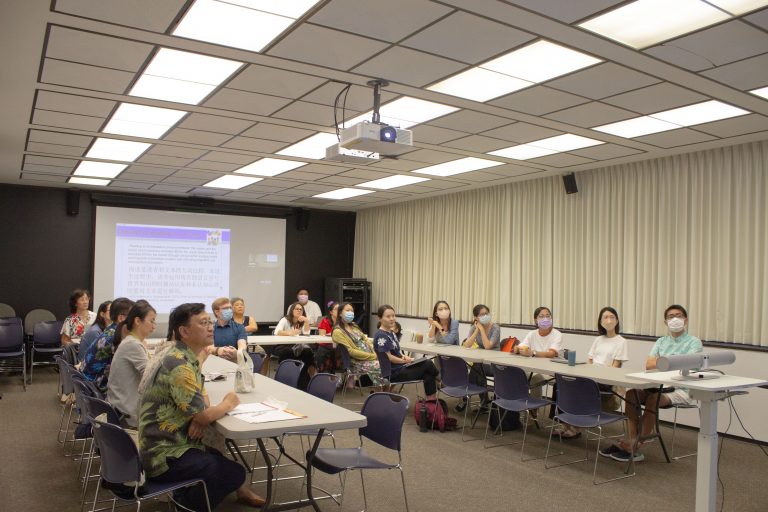CCLE Talk Series: Professor Helen Shen and Chinese L2 Reading Proficiency Building
CCLE Author
January 6, 2023

Helen Shen
Asian and Slavic Languages and Literatures, University of Iowa
Topic: Chinese L2 Reading Proficiency Building: Intensive And Extensive Reading
Dr. Sung received a Ph.D. in Romance Linguistics from UCLA in 1994 and then joined Lawrence University in Wisconsin, where he teaches linguistic theory and Chinese. He is currently the chair professor and head of the Department of Chinese and Japanese and the director of the Linguistics Program at the school. Dr. Sung’s main research area is the syntactic structure of Romance languages and East Asian languages, as well as the teaching of Chinese and Tibetan grammar. His works include “A Reference Grammar for Teaching Chinese: Syntax and Discourse” co-authored with Professor Cui Songren (2022, jointly published by Springer Nature and Peking University Press), “Amdo Tibetan: A Comprehensive Grammar Textbook” (2021, Routledge Press), “Colloquial Amdo Tibetan” (2005, China Tibetology Press), “Introduction to Syntactic Theories” (1997, China Social Science Press, third edition in 2015) and other books.
Workshop Report
CCLE aims to promote and advance the quality of teaching Chinese as a second language. Two CCLE talks are held every academic year, one during each semester, to address the professional development of instructors and to enrich UHM’s Chinese programs and research. Professor Helen Shen’s talk about L2 Chinese reading is the second of the CCLE talk series, held on January 6, 2023.

Highlights from the Talk
Research on reading in target language and teaching have been widely discussed for a long time, especially for L2 Chinese because of the unique orthography system. These issues are Professor Shen’s expertises.
According to the bottom-up perspective, a L2 Chinese learner has to be equipped with great character recognition to read an article. Professor Shen also indicated that to comprehend an article in Chinese, learners need the prerequisites such as character/word recognition, automaticity, accuracy, and speed. Research demonstrated that fourth year L2 Chinese learners should be able to read 300 to 499 characters per minute and fifth years should be able to read more than 500 characters per minute. As such, instructors can reference these research results to help decide the length of reading materials for different proficiency level learners.
However, one thing to keep in mind is that reading speed does not equal reading comprehension. Raising students’ reading speed could help students to read more and expand their word vault through the reading process. This is known as “extensive reading.” Based on the learners’ target language proficiency, the instructor should explicitly redirect reading strategies for their learners from “read to learn” to “learn to read.” In other words, to go from intensive reading/bottom-up, to extensive reading/ top-down.
Based on the research of the reading speed of L2 Chinese learners, instructors can reference their results to help decide the length of reading materials for different proficiency level learners, and that also encourage reading strategies for learners from “read to learn” to “learn to read.”
During the talk, Professor Shen provided a hands-on section. Participants read articles and suggested questions that would correspond to the appropriate reading comprehension levels. Questions would consider literacy level, interpretive level, critical analysis level, and integration and application level. Participants discussed their prompts with each other and shared their teaching experiences related to L2 readings. The majority of participants agreed that integration and application level questions are hard to design because it requires knowledge of the learners’ background and their interests.
After the talk, Professor Shen and participants enjoyed a luncheon with Cantonese-style lunch boxes together. Following the talk, professors shared their opinions regarding L2 Chinese readings and assessments. It was another informative and inspiring discussion. We look forward to having the next talk and advancing professional L2 Chinese teaching theories and skills.

